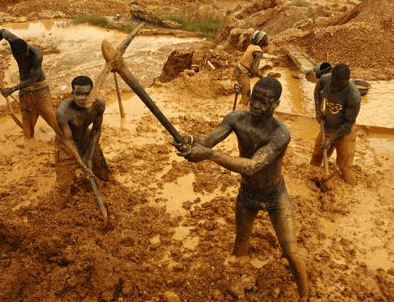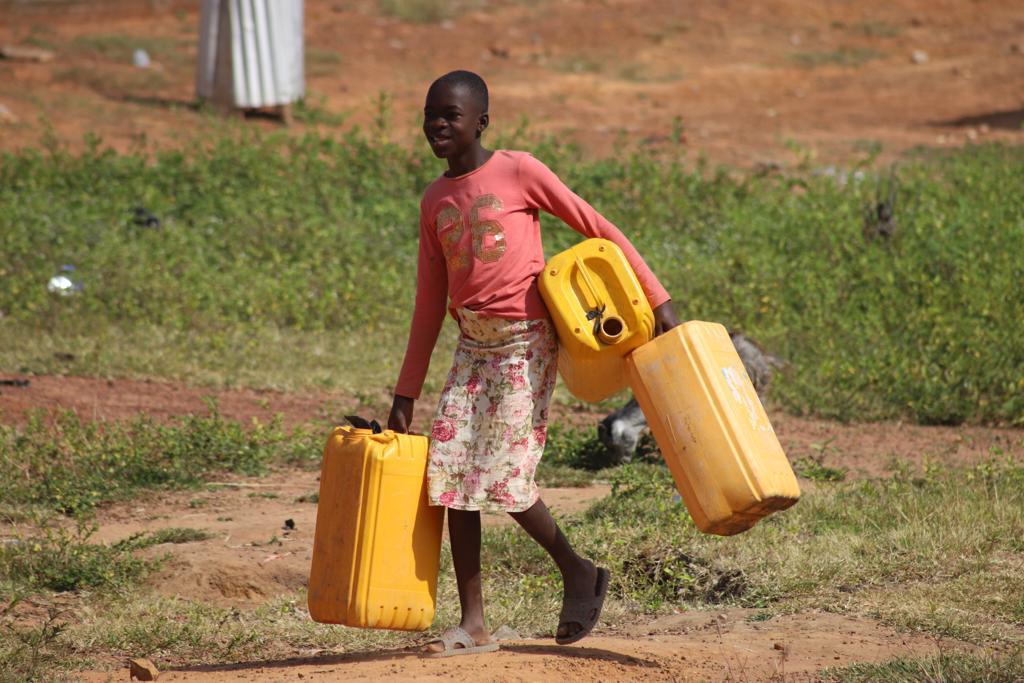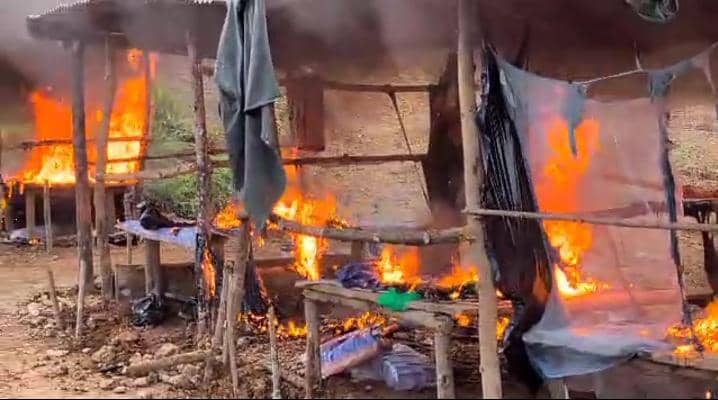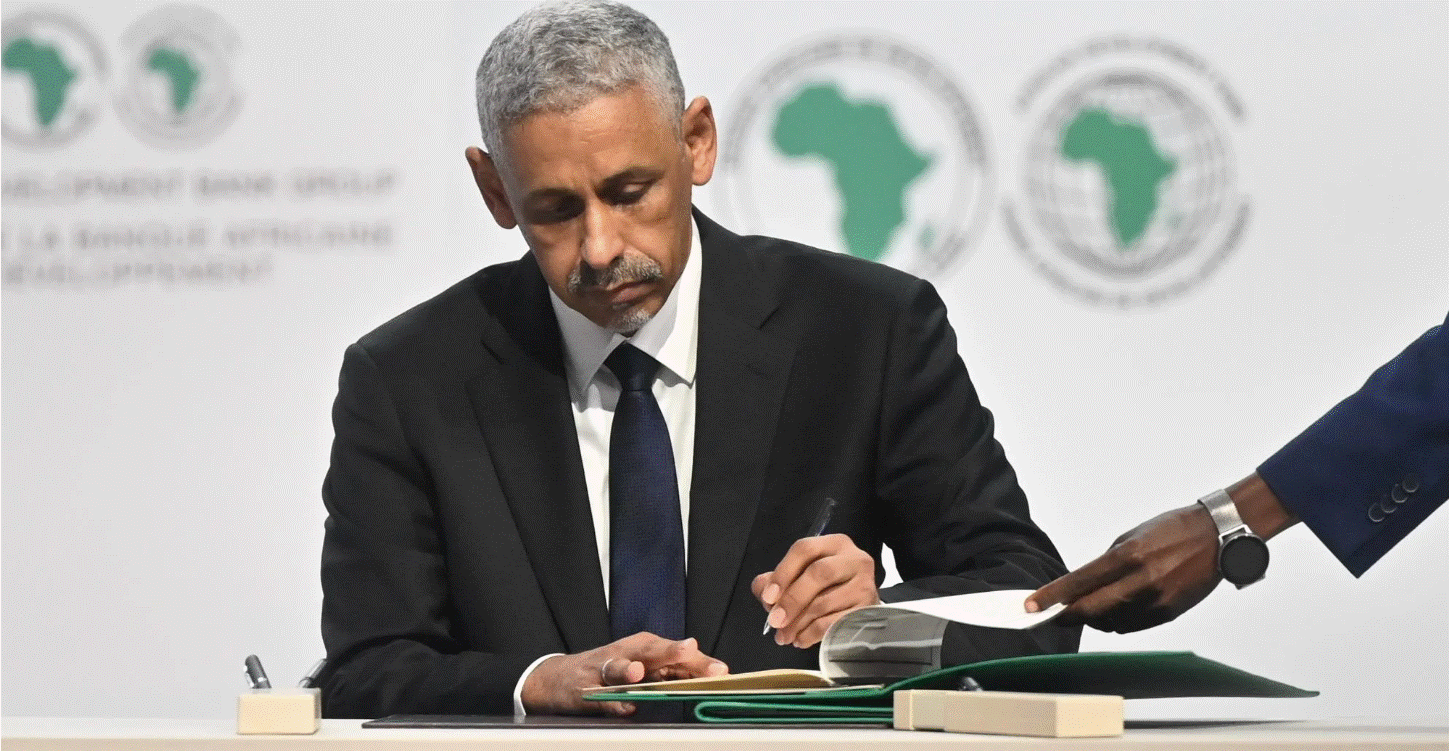

 Illegal small-scale mining, locally known as galamsey, has become a national affliction, an unrelenting scourge that continues to scar Ghana’s landscape and ecological integrity.
Illegal small-scale mining, locally known as galamsey, has become a national affliction, an unrelenting scourge that continues to scar Ghana’s landscape and ecological integrity.
What originated as a desperate means of survival has evolved into a sprawling, well-financed criminal enterprise.
Rivers once teeming with aquatic life now run brown with mercury and cyanide. Forests that once sheltered biodiversity and sustained livelihoods have been reduced to wastelands. Communities remain torn between economic desperation and environmental collapse.
Despite years of military deployments, regulatory crackdowns, and widespread public condemnation, galamsey remains stubbornly resilient. The issue has transcended individual miners with shovels and now involves shadowy networks equipped with excavators, political protection, and transnational financing.
Ghana cannot afford to address this crisis using outdated tools. A strategic, intelligence-driven, and community-rooted response is required.
That solution lies in the fusion of Intelligence-Led Policing (ILP) and Community-Oriented Policing (COP).
Intelligence-led policing: Disrupting the hidden machinery
ILP represents a proactive, data-driven approach that targets the architecture of organised crime.
In the context of galamsey, ILP enables law enforcement agencies to identify and monitor illegal mining hotspots using satellite and drone technology, monitor tributaries of rivers discharging effluents of galamsey activities into the rivers, track the movement of heavy machinery, hazardous chemicals, and illicit gold, and uncover financiers, suppliers, and political actors operating behind the scenes.
Galamsey has transformed into a calculated operation. ILP allows authorities to move beyond surface-level raids and instead dismantle the command centers that sustain this destructive industry.
Community-oriented policing: Reclaiming trust and territory
COP complements ILP by embedding law enforcement within the communities most affected by galamsey. This model emphasises collaboration, trust-building, and shared responsibility.
In practice, COP involves engaging traditional leaders, youth groups, and civil society organisations in environmental protection, creating safe and confidential channels for reporting illegal activity, educating communities on the long-term health and ecological consequences of galamsey.
Many communities face a tragic paradox; benefiting economically from galamsey while enduring its environmental and social fallout.
COP helps shift the narrative from complicity to stewardship, empowering citizens to become defenders of land and water resources.
A breakthrough from academia
In this context, the PhD research of Mr. Ernest Kwaku Agyei, Lecturer at Kumasi Technical University, conducted at Sir Padampat Singhania University in India, offers a groundbreaking contribution.
This research integrates geospatial intelligence, behavioral mapping, and predictive analytics to build a comprehensive framework for combating galamsey. The findings are not only academically rigorous, they are practically transformative.
Mr. Agyei’s model proposes a hybrid system in which ILP and COP are interlinked, allowing for real-time intelligence gathering, community feedback loops, and targeted enforcement.
If adopted, this framework could become the most effective antidote to the galamsey crisis Ghana has encountered.
A national imperative
Ghana stands at a critical juncture. The environmental toll of galamsey continues to deepen, and the window for meaningful intervention is rapidly narrowing.
Symbolic crackdowns must give way to science-based, community-driven strategies. Intelligence-led and community-oriented policing are not merely law enforcement models, they are instruments of national survival.
Before any serious effort is made to remediate Ghana’s poisoned river bodies, the machinery of galamsey must first be dismantled; decisively and permanently.
Attempting to restore ecosystems while illegal mining continues unabated is akin to pouring clean water into a leaking vessel. Without the strategic enforcement of Intelligence-Led Policing and the grassroots vigilance of Community-Oriented Policing, every dollar spent on environmental recovery risks being washed away by fresh waves of mercury and cyanide.
The rivers cannot heal while the wounds are still being inflicted.
ILP and COP are not optional precursors, they are the gatekeepers to any meaningful restoration. Only by choking off the source of contamination can the nation begin to reclaim its waters with confidence and purpose.
Therefore, source control must be prioritised before adaptive remediation efforts.
By Prof Emmanuel Daanoba Sunkari
Source: GNA
The post Galamsey’s grip on Ghana: Why intelligence-led and community-oriented policing must precede water remediation efforts appeared first on Ghana Business News.
Read Full Story














Facebook
Twitter
Pinterest
Instagram
Google+
YouTube
LinkedIn
RSS